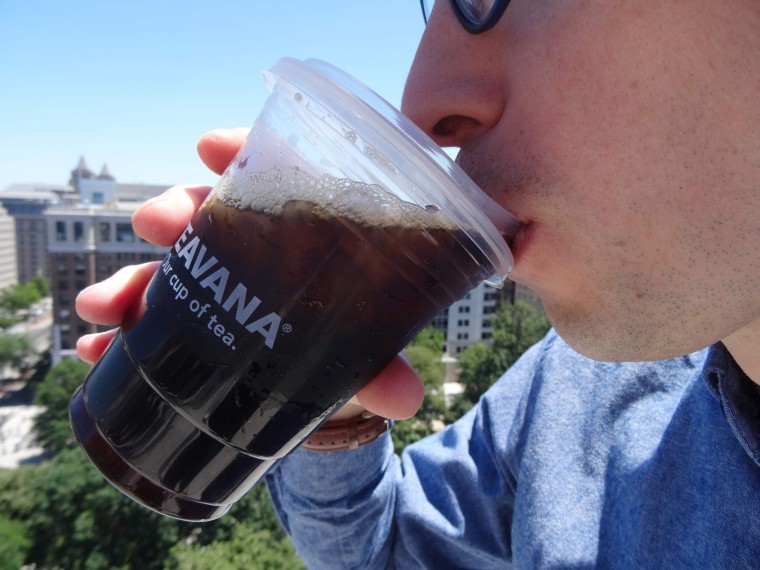It’s the last straw for Starbucks.
The Seattle-based coffee chain said that it will eliminate single-use plastic straws in all of its 28,000 stores by 2020, an announcement that comes on the heels of Seattle’s passage of a citywide ban on plastic straws (as well as utensils) that went into effect at the beginning of this month.
So, who's next?
“When one major company does something, that kind of puts pressure on the others. No restaurant wants to be known as the last one to use Styrofoam packaging,” said Caleb Bryant, senior beverage analyst at Mintel.
In an emailed statement, a spokeswoman for Burger King said that the brand would begin its rollout of biodegradable straws in the U.K. this September. In response to a question about if or when the brand would expand the initiative into locations where it is not legally mandated, she said, “We look forward to sharing more updates in the near future.”
McDonald’s CEO Steve Easterbrook told CNBC last month that the issue of disposable plastic was “on everyone’s radar,” but said the fast food chain had no plans to ditch plastic altogether. "There isn't currently a viable alternative that's nonplastic at the moment, at the scale we need,” he said.
Alaska Airlines announced in May that it will stop using plastic coffee stirrers and citrus picks, part of a larger set of sustainability goals. (The airline said it used 22 billion of them last year.)
Bon Appetit Management Company, a foodservice management company that services colleges, corporations and cultural institutions at 1,000 locations across the U.S., recently announced that it would stop serving plastic straws in the facilities it manages, spurred by a decision from the University of Portland, one of its clients, to do away with single-use plastic straws.
“Our first choice is to have straws only by request,” said Maisie Ganzler, chief strategy and brand officer for the company. Ganzler said the company is bringing in paper straws and experimenting with ones made from hay and bamboo.
The move away from plastic straws is part of a growing awareness of the effect that the eight million metric tons of plastic that are dumped into the world’s oceans each year have on marine life.
Social media has helped play a role in raising awareness. A video of a plastic straw being removed from the nose of a rescued sea turtle went viral. Actor and activist Adrian Grenier of Entourage has taken to replying to the Instagram photos of fellow celebrities using plastic straws with comments like "#stopsucking."
In a report on sustainability practices, the National Restaurant Association said that 45 percent of customers consider environmentally friendly packaging to be an important factor they consider when making a choice of where to dine.
Although alternatives like paper or compostable straws are more expensive than their plastic counterparts, Darren Tristano, CEO of foodservice industry consulting firm CHD Expert said the ultimate economic impact for Starbucks might be a wash, as straw usage overall declines over time. Unlike other restaurant chains that are swapping in straws made of paper or plastic-like compostable materials, Starbucks has gone a step further, pioneering the use of recyclable cold drink lids that don’t need to be used with a straw and investing $10 million in developing a recyclable, compostable hot-drink cup.
There also is the financial cost to consider. “The paper straws are significantly more expensive than the plastic,” Ganzler said. She wouldn’t say how much the shift away from plastic was costing Bon Appetit, but she said she expects both product and distribution costs for non-plastic straws to fall as their usage becomes more widespread throughout the industry.
But despite the cost, it’s only a matter of time before other brands follow Starbucks’ lead, said Tristano.
“I would expect to see McDonalds, Wendy's and Dunkin Donuts following suit and making some changes in regions of the U.S. that are most environmentally conscious… and also near the ocean or lakes where wildlife can be affected by the debris and pollution,” he said.
